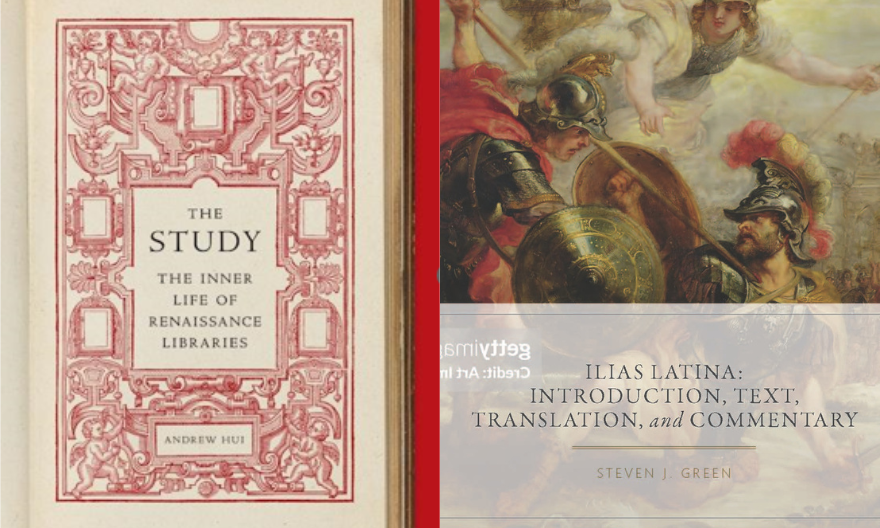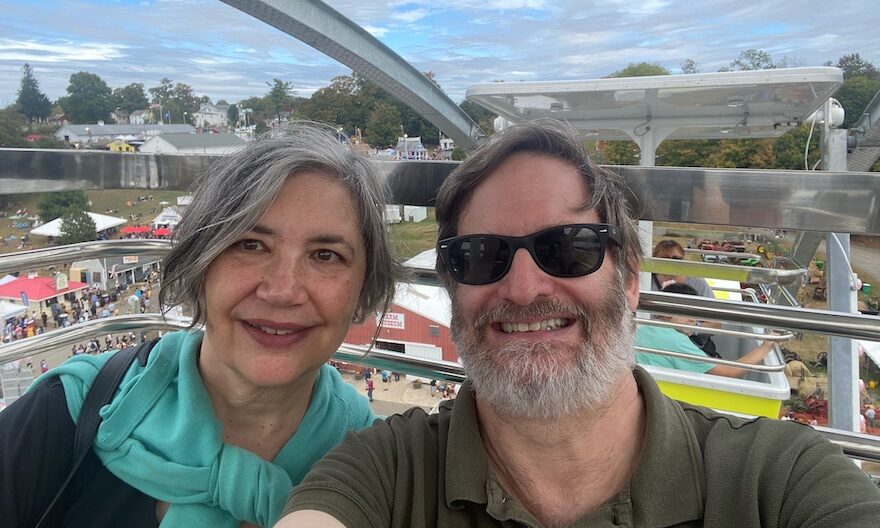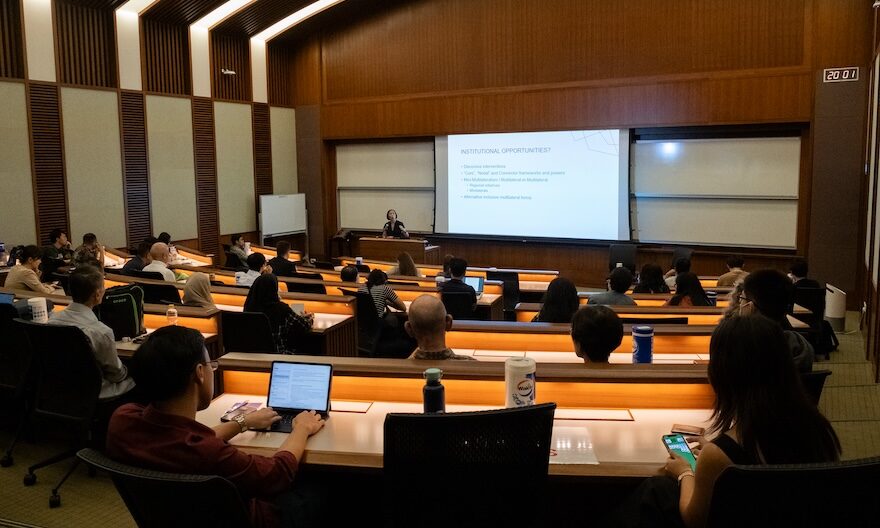Yale-NUS community celebrates the launch of Lala-Land: Singapore’s Seafood Heritage
The collection of essays and seafood recipes edited by Assistant Professor Anthony Medrano found its beginnings in a Yale-NUS class
The launch of Lala-Land: Singapore’s Seafood Heritage took place at the Yale-NUS Blackbox Theatre on May 4. This book, edited by Assistant Professor of Social Sciences (Environmental Studies) and National University of Singapore (NUS) Presidential Young Professor of Environmental Studies Anthony Medrano, is a collection of essays on various Singaporean seafood dishes, with colourful illustrations and authentic recipes. It charts Singapore’s remarkable seafood heritage in ways that are incisive and interdisciplinary, contributing to a rising swell of scholarship about the cultural richness of Southeast Asia’s edible ocean. Most of the essays were written by Yale-NUS students and alumni, and trace the histories of the dishes, the living organisms and cultures that brought these dishes into existence, and the environments and ecologies to which these organisms belong. The essays cover a variety of dishes ranging from the common to rare and simple to complex, such as char kway teow and drunken prawns.
The book launch was moderated by President of the Singapore University of Social Sciences, Professor Tan Tai Yong who was formerly the President of Yale-NUS College. Yale-NUS alumna Angela Hoten (Class of 2023), who also helped coordinate the production of the book, introduced Asst Prof Medrano, Professor Tan, and student and alumni contributors. Delving into the book’s production background, Asst Prof Medrano shared that during the initial planning stage for the book, he had hoped to cover seafood outside of Singapore, but this plan was scrapped after the COVID-19 pandemic disrupted international travel. After teaching a class at Yale-NUS called “Asia’s Edible Ocean” in 2020, Asst Prof Medrano decided to focus on Singapore as the book’s locale. While taking this course, the students met Singaporean fishmongers, chefs, and scholars, traced the supply chains of marine products, and explored the local seafood scene. The essays the students wrote for this class were expanded on and edited for inclusion in the book.
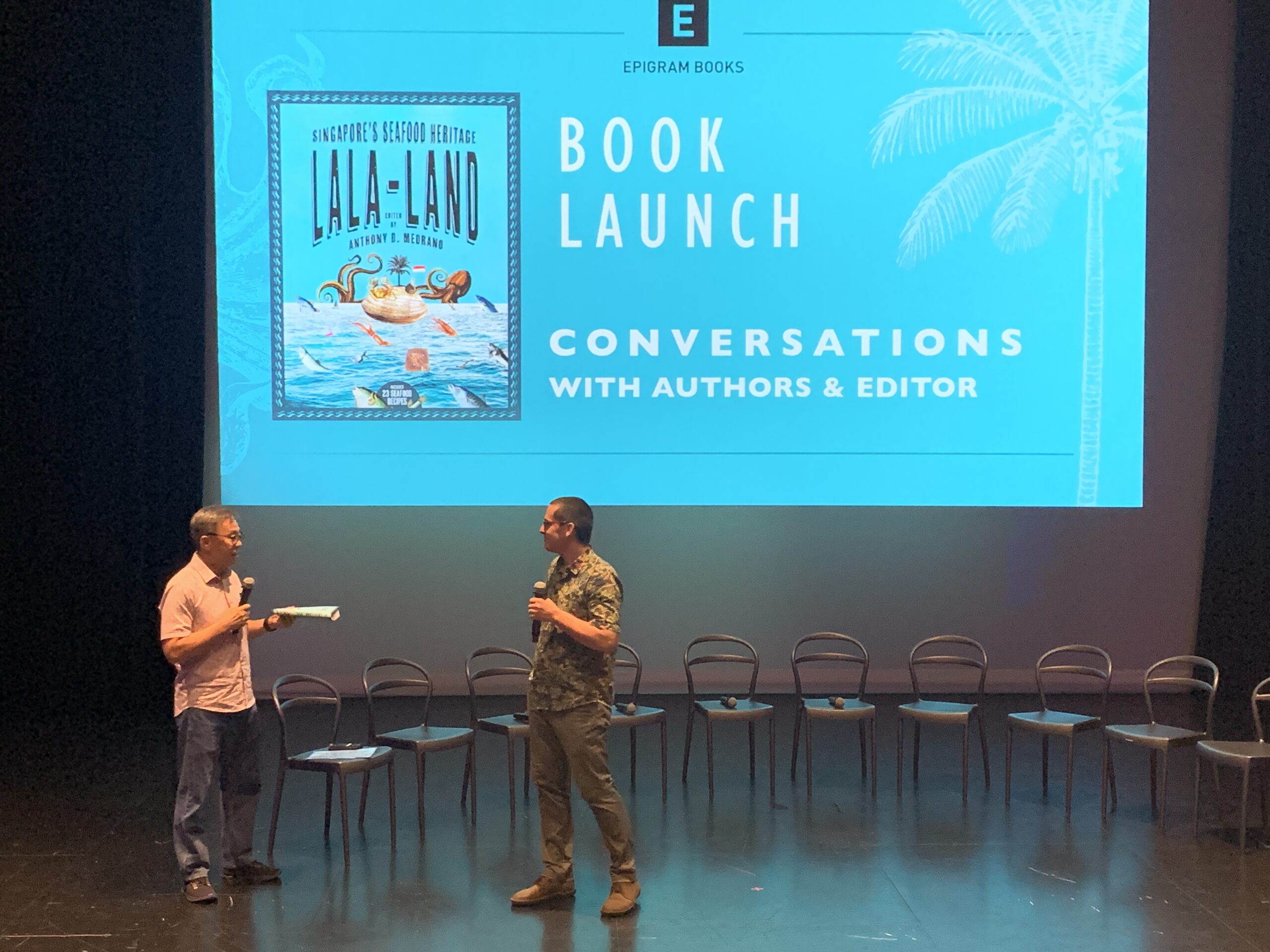 Asst Prof Medrano and Professor Tan engaged in conversation about the book’s beginnings. Image provided by Aruzhan Shalabayeva.
Asst Prof Medrano and Professor Tan engaged in conversation about the book’s beginnings. Image provided by Aruzhan Shalabayeva.
The Yale-NUS student and alumni contributors were also invited to take the stage. Each contributor shared about why they decided to focus on their particular dish, and what they learned during their research process. Angela Hoten’s essay covered blood cockles, and found its beginnings in a series of interviews that she did with the members of Singapore’s Teochew community. She shared that blood cockles are traditionally consumed by people of Teochew descent during the Qing Ming Festival. She said, “I was really interested in how blood cockles are used, and how their shells are used as currency. All these things have significance to the Teochew practice.” Angela’s essay is one among others that explored seafood dishes that are culturally significant to Singapore’s various ethnic communities.
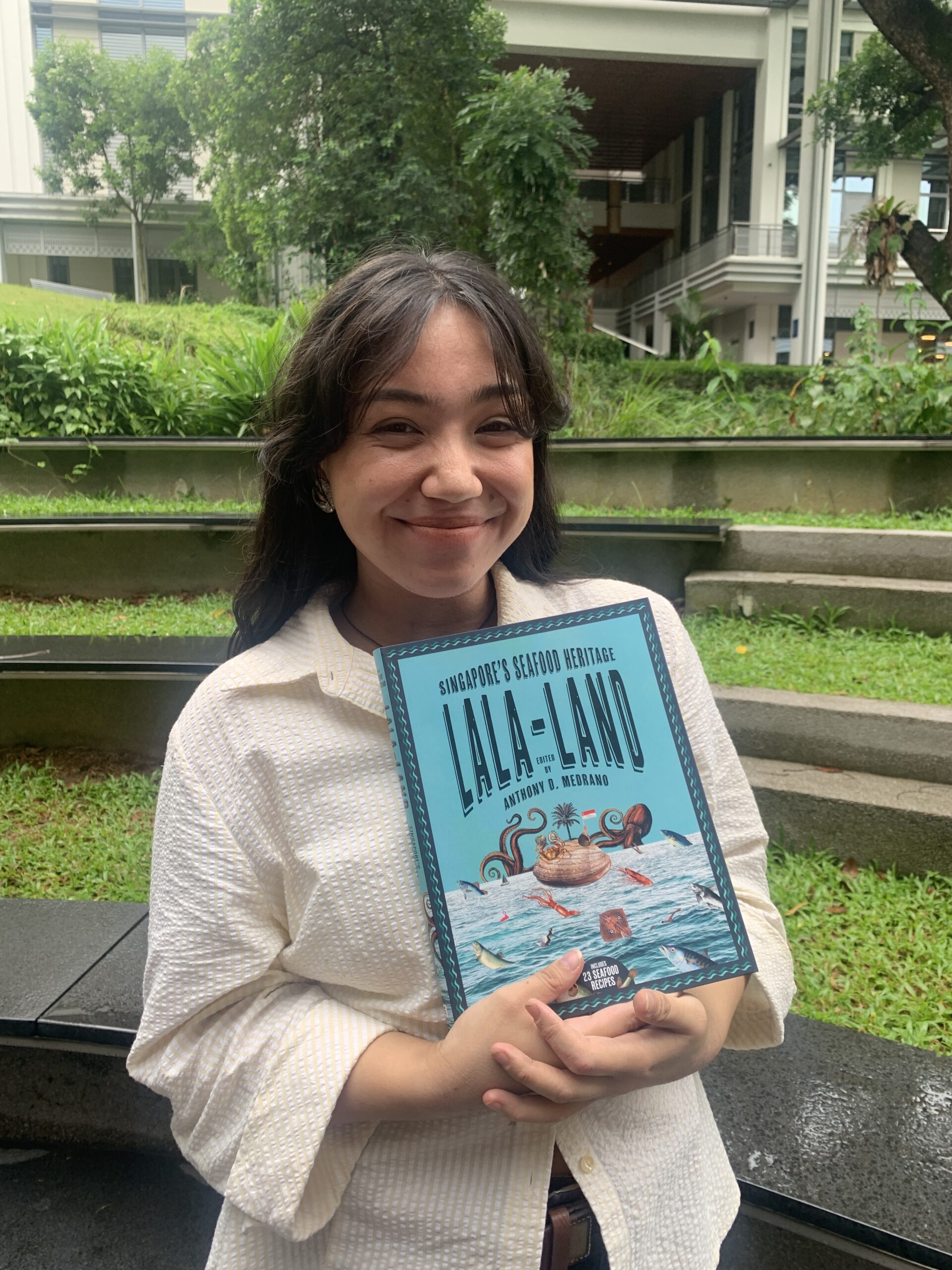 Angela Hoten (Class of 2023) wrote an essay on blood cockles. Image provided by Aruzhan Shalabayeva.
Angela Hoten (Class of 2023) wrote an essay on blood cockles. Image provided by Aruzhan Shalabayeva.
Yale-NUS alumna Kathy Poh (Class of 2020) introduced an essay that she wrote on sambal stingray. She shared that she chose to write about this dish because she enjoyed it, but did not know much about it. She explored the history of the stingray fish, as well as the history of consumption of sambal stingray in Singapore, and worked with the city’s newspaper archives to uncover the popular perceptions of stingray in the decades prior. Commenting on the fading awareness of the marine life diversity in Singapore and how she hoped her essay could help bridge the information gap, she said, “I feel that there used to be more awareness and understanding of the different kinds of species of stingrays. For example, in the Malay vernacular, there would be different names for different species. But now, we don’t really have that anymore.”
While a love for teaching and learning seeded Lala-land, Asst Prof Medrano alluded to the support and generosity of the community that made the collection of essays and recipes possible. He shared, “My hope for the reader [is] to appreciate Singapore’s seafood heritage through stories and recipes, and to reflect on what it means to eat big or small, farmed or wild marine organisms today.”

